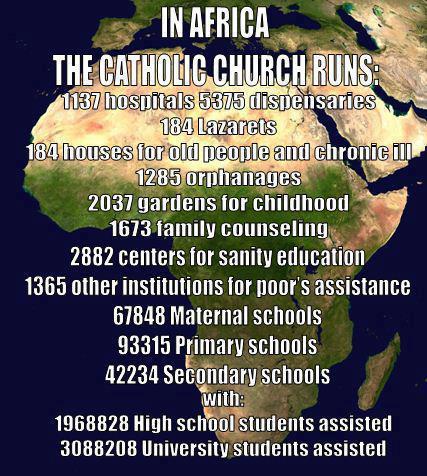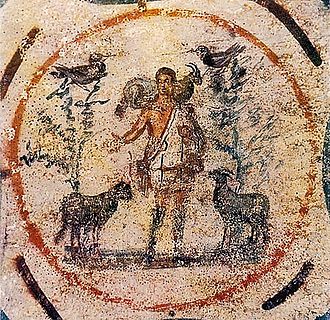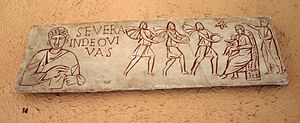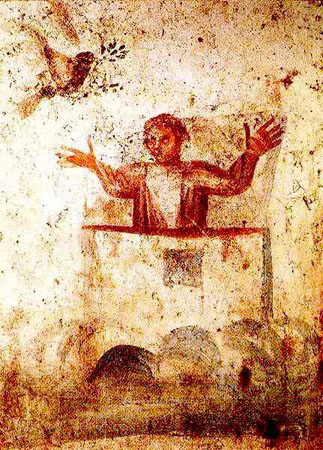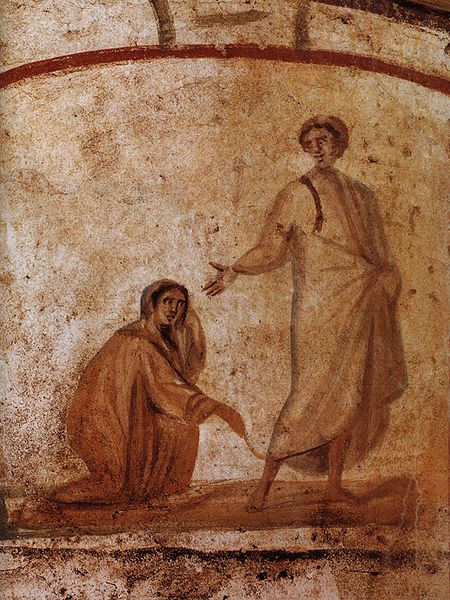The Church is called the “Body” of Christ often (e.g., Eph. 1:22-3), and is compared to a seed which grows into a tree (Mt. 13:31-2).
Seeds and bodies grow and expand. Yet Protestants tend to see Church and Doctrine as more like a statue, subject to pigeon droppings (i.e., so-called Catholic “corruptions”!). This robs the metaphors of Christ of their essential meaning. It is impossible to claim that no development occurred in Church history, or that it ceased after the 1st, 2nd, 3rd, or 5th century, etc. (all arbitrary human traditions). The Bible is not absolutely clear in every part, and requires the developing wisdom of the Church.
Doctrines agreed upon by all develop, too. The Divinity or Godhood of Christ was only finalized in 325, and the full doctrine of the Trinity in 381.The dogma of the Two Natures of Christ (God and Man) was proclaimed in 451. These decisions of General Councils of the Church were in response to challenging heresies. Why should Protestants accept these authoritative verdicts, but reject similar proclamations on Church government, the Eucharist, Mary, Purgatory, etc.?
Although understanding increases,
the essential elements of doctrines exist from the beginning. Today’s Church shouldn’t be expected to look like the primitive Church if it is a living, vibrant, spiritual organism. But even the early Church looks like a small “Catholic tree.” It doesn’t look like a Protestant “statue,” doomed to be increasingly corrupted by an encroaching, “diabolical” Catholicism, as is imagined by millions of Protestants unacquainted with the early Church and the oldest source materials after the New Testament, such as the writings of St. Ignatius of Antioch (d.c. 110) and St. Clement of Rome (d.c.101).
John Henry Cardinal Newman (1801-1890), the great English convert to Catholicism, who is widely regarded as one of the most profound religious thinkers of his time, wrote in his Essay on the Development of Christian Doctrine (1845), the one indispensable work on this subject:
One thing at least is certain; whatever history teaches . . . at least the Christianity of history is not Protestantism. If ever there were a safe truth, it is this. And Protestantism . . . as a whole, feels it, and has felt it. This is shown in the determination . . . of dispensing with historical Christianity altogether, and of forming a Christianity from the Bible alone . . . To be deep in history is to cease to be a Protestant.
(Introduction 5, 6)
The bulk of Newman’s extraordinary work is devoted to the exposition of a series of analogies, showing conclusively that the Protestant static conception of the Church (both historically and theologically) is incoherent and false. He
argues, for example, that notions of suffering, or “vague forms of the doctrine of Purgatory,” were universally accepted, by and large, in the first four centuries of the Church, whereas, the same cannot be said for the doctrine of Original Sin, which is agreed upon by Protestants and Catholics.
Protestants falsely argue that Purgatory is a later corruption, but it was present early on and merely developed. Original Sin, however, was equally if not more so, subject to development. One cannot have it both ways. If Purgatory is unacceptable on grounds of its having undergone development, then Original Sin must be rejected with it. Contrariwise, if Original Sin is accepted notwithstanding its own development, then so must Purgatory be accepted.
Thus Protestantism is inconsistent in its selective espousal of Christian beliefs. The so-called “Catholic distinctives” were merely cast off at the time of the Protestant Revolt in the 16th century – basically due to prejudice and ignorance. Protestantism ever since has had to either distort, ignore, or be embarrassed by the facts of early Christian history which, again and again, are found to be much more in conjunction with Catholicism. Protestant anti-Catholic apologists are notorious for searching for quotes by Church Fathers which appear to support their presuppositions, while bypassing those (often by the same Father) which clearly suggest the Catholic outlook. I did this myself in the year before I was convinced of the truth of Catholicism.
Newman states, in summary:
If it be true that the principles of the later Church are the same as those of the earlier, then, whatever are the variations of belief between the two periods, the later in reality agrees more than it differs with the earlier, for principles are responsible for doctrines. Hence they who assert that the modern Roman system is the corruption of primitive theology are forced to discover some difference of principle between the one and the other; for instance, that the right of private judgment was secured to the early Church and has been lost to the later, or again, that the later Church rationalizes and the earlier went by faith.
(Ibid., ch. 7, section 6: conclusion)
This is true whether the theological considerations are those agreed upon by all, such as the Divinity of Christ, the Two Natures of Christ, the Trinity, the Holy Spirit, Original Sin, and the Canon of Scripture, or those denied by Protestants, such as the Marian dogmas, Purgatory, the papacy, the Real Presence of Christ in the Eucharist, the Communion of Saints, priestly absolution, baptismal regeneration, the Sacrifice of the Mass, etc.


